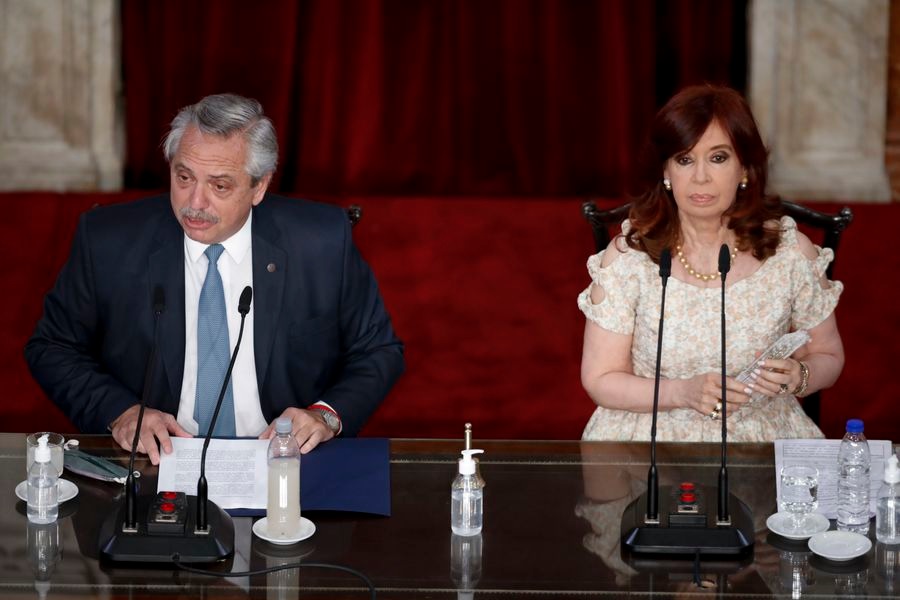RIO DE JANEIRO, BRAZIL – The resignation of Argentina’s Economy Minister, Martín Guzmán, was another blow to the autonomy of President Alberto Fernández and an advance of Vice President Cristina Fernández de Kirchner in a strategic area of the government, which poses an uncertain scenario for the remainder of her term until 2023, analysts warned on Monday.

Guzmán, who had accompanied the president since she took office in December 2019, resigned on Saturday in the absence of political backing for his plan to lower the fiscal deficit and control inflation, which has accumulated close to 30% so far this year.
It was at the end of a hectic week in which the financial market also turned its back on him with a substantial increase in the country’s risk, a fall of Argentine securities abroad, and a dollar that soared in the informal exchange market.
President Fernández supported the former minister despite vice-president Cristina de Kirchner’s constant public attacks against the government’s economic policy and the agreement reached by the economist with the International Monetary Fund (IMF) to refinance a debt of US$45 billion.
Guzmán’s resignation represents a new loss for the president, who had already suffered the departure of other officials of his closest confidence.
At the same time, the appointment of Silvina Batakis to the Ministry of Economy with the endorsement of the vice president suggests an advance of the Kirchnerist wing over the government.
“She congratulated me; I told her what I was thinking of doing with the cabinet; she agreed,” revealed the brand new minister in declarations to the C5N channel.
On Tuesday, Batakis said: “I will communicate with the IMF technicians to analyze the progress of the agreement and see how we can continue working,” without offering further details.
In line with the economic vision of the vice president, she supported an extraordinary income tax for local companies favored by Russia’s military operation in Ukraine, which is being debated in Congress, and she was open to analyzing the implementation of a universal basic salary for the most vulnerable sectors of the population.
For Rosendo Fraga, political analyst and historian, “the political defeat of the president is clear with the departure of Guzmán and the arrival of Batakis,” a heterodox economist -that is, one who believes in the intervention of the State in the economy-, with long experience in public administration and more akin to the populist policies of Kirchnerism.
“The vice-president does not govern, but she has growing influence in power,” he added. “Here there is no agreement (between the president and his vice-president), there is a truce, and a fragile one,” he warned.
With information from La Tercera

